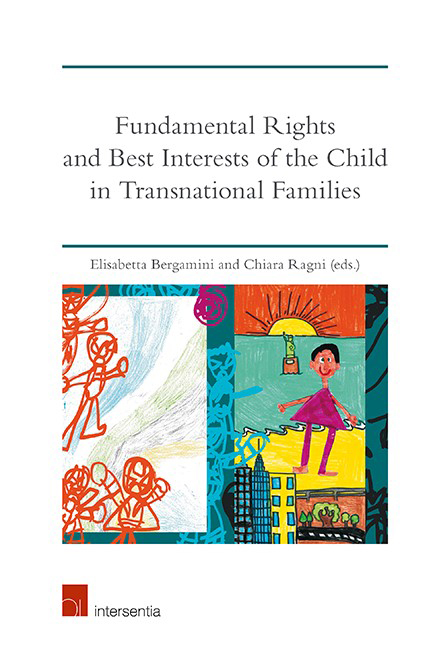Book contents
- Frontmatter
- Dedication
- Preface
- Acknowledgements
- Contents
- List of Cases
- List of Authors
- PART I THE IMPACT OF HUMAN RIGHTS AND OF THE BEST INTERESTS OF THE CHILD ON EU FREE MOVEMENT AND MIGRATION LAW
- PART II THE BEST INTERESTS OF THE CHILD AS A CONCERN OF HUMAN RIGHTS AND EUROPEAN PRIVATE INTERNATIONAL LAW
- Index
- About the Editors
Preface
Published online by Cambridge University Press: 12 November 2019
- Frontmatter
- Dedication
- Preface
- Acknowledgements
- Contents
- List of Cases
- List of Authors
- PART I THE IMPACT OF HUMAN RIGHTS AND OF THE BEST INTERESTS OF THE CHILD ON EU FREE MOVEMENT AND MIGRATION LAW
- PART II THE BEST INTERESTS OF THE CHILD AS A CONCERN OF HUMAN RIGHTS AND EUROPEAN PRIVATE INTERNATIONAL LAW
- Index
- About the Editors
Summary
The idea of devoting this book to the relationship between the fundamental rights of the child and European family law stems from the Jean Monnet Modules on European Family Law, funded by the European Commission, in the years 2013/2016 and 2014/2017 at our respective Universities (University of Milano and University of Udine).
During the lectures and seminars that we organised in the framework of these modules, as coordinators, we realised that even though family law is currently considered a hot topic and is subject to intensive research in the academic world, one of the most relevant issues in the European context, that still has not been thoroughly explored, was the one related to the need to protect the rights of children both in the framework of the free movement of citizens and migration law and in the context of international private law. Thirty years have passed since the UN Convention on the Rights of the Child was adopted: the aim of this book is also to assess how and to what extent its provisions have been implemented in family-related matters, with special regard to the European context.
Notwithstanding the lack of any EU competence on family matters that fall into the exclusive jurisdiction of national law, the protection of families and family ties within EU Member States should actually be guaranteed as a means of protecting fundamental rights, and this becomes even more relevant when dealing with minors. The right to family life is indeed included in the Charter of Fundamental Rights of the European Union (the EU Charter) and in the European Convention on Human Rights (ECHR), both of which, according to the EU Treaty, impose legal duties on Member States. Specific norms regarding the rights of children can be found both in the Charter (at Article 24), and in the case law of the ECtHR, which state, in accordance with the 1989 UN Convention on the Rights of the Child, that minors (being EU citizens or third country nationals) have the right to protection and care as is necessary for their well-being. In accordance with both international and European law, minors ‘views must be taken into account and their best interests must be a primary consideration when taking any action relating to them.
- Type
- Chapter
- Information
- Publisher: IntersentiaPrint publication year: 2019

